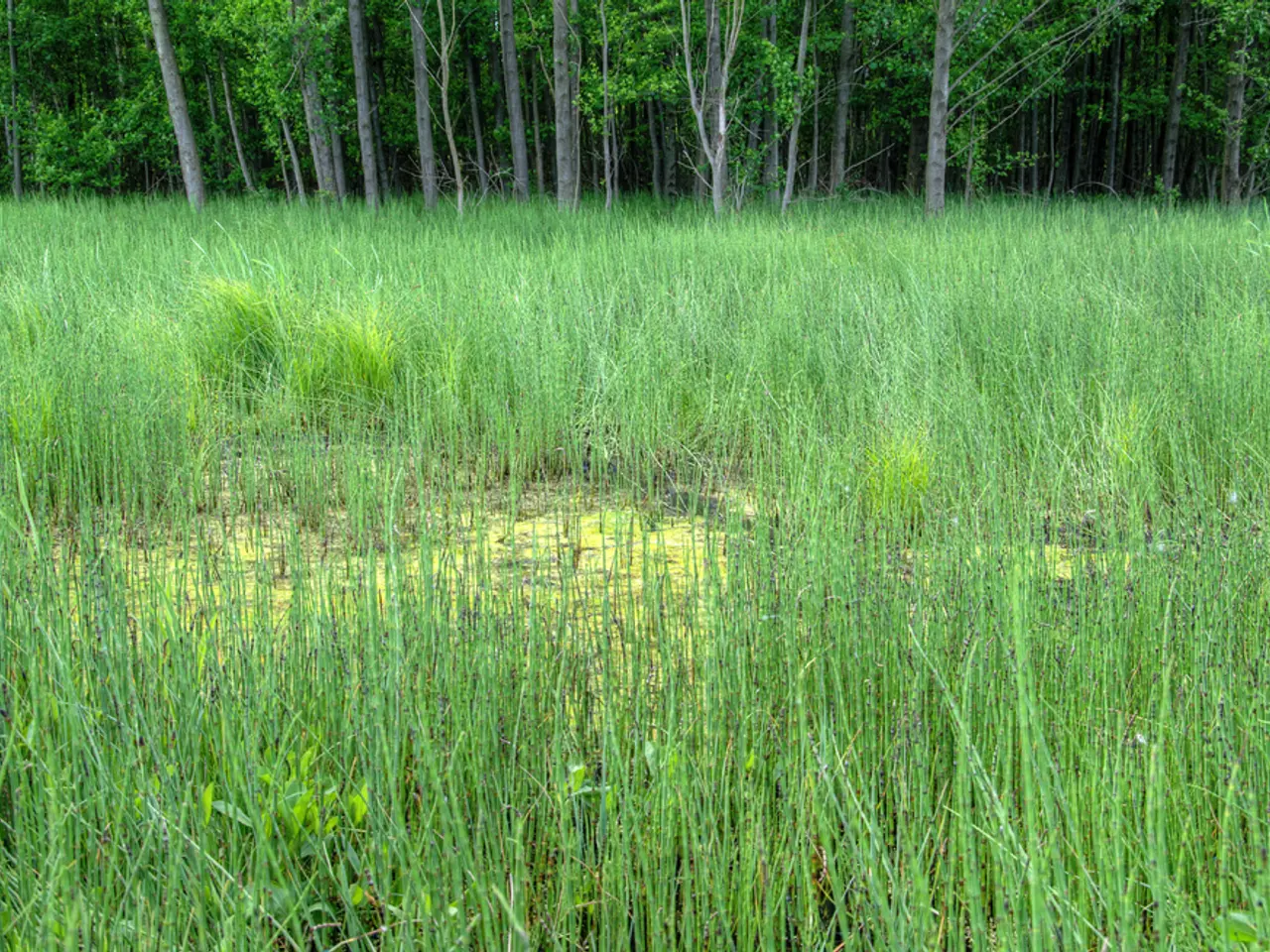Agroforestry poised for dominance in the future agricultural landscape
Agroforestry: A Sustainable Solution for the Future of Farming
Agroforestry, a farming method that combines crop farming or livestock farming with shade-providing trees and shrubs, is gaining renewed interest as a key component of sustainable land use. This innovative approach is being championed by the universities of Hohenheim in Stuttgart and Freiburg, two institutions renowned for their work in advancing sustainable agriculture and agroforestry research.
According to forest scientist Claudia Bieling from the University of Hohenheim, agroforestry delivers multiple synergy effects and benefits. It improves soil health through regenerative practices, sequesters carbon to mitigate climate change, enhances biodiversity, and provides economic diversification opportunities through the yield of timber, fruits, and nuts. Agroforestry also increases resilience to climate variability, supports water conservation, reduces soil erosion, and promotes social benefits through community collaboration and knowledge-sharing among farmers.
The combined integration of trees, crops, and livestock leverages ecological interactions that optimize resource use and minimize negative impacts, producing both environmental goods and economic returns. This integrative system enhances microclimates, protects livestock, and improves air and water quality while sustaining food security and income stability for farming communities.
Agroforestry is being positioned as a key component of responsible environmental management, as it offers a holistic approach that moves beyond a sectoral view of forests or agricultural areas. Thomas Seifert from the University of Freiburg emphasizes the need for this holistic approach, stating that it is essential for long-term solutions.
The universities of Hohenheim and Freiburg are strengthening their cooperation to further develop agroforestry. They plan to collaborate on more joint research projects, teaching offers, and potentially a joint master's program. Long-term trial areas are also planned as part of their collaboration.
Michael Cormann from the Agroforest System Research Coordination Office notes the historical prevalence of agroforestry in Baden-Württemberg and the potential for modern approaches to revitalize it. A joint agroforestry cluster for the entire region could emerge from this initiative with other universities.
As agriculture faces increasing challenges due to climate change, agroforestry is being promoted for its ability to make agriculture more resilient to climate risks. By adopting this sustainable land use system, farmers can not only ensure the long-term viability of their operations but also contribute to global efforts to combat climate change and protect biodiversity.
For more detailed, project-specific information about how the Universities of Hohenheim and Freiburg are advancing agroforestry, further research is recommended.
- The universities of Hohenheim and Freiburg, under the banner of sustainable agriculture, are focusing on environmental-science aspects like agroforestry, aiming to create a sustainable living environment by integrating trees, crops, and livestock.
- In line with the holistic approach for long-term solutions, the Universities of Hohenheim and Freiburg are collaborating on joint research projects, teaching offers, and potentially a master's program, aimed at advancing the science of agroforestry and its application in lifestyle choices and home-and-garden designs.
- Agroforestry, championed for its contributions to climate-change mitigation through carbon sequestration, is gaining traction as a vital management strategy, fostering sustainable-living practices while ensuring food security, protecting biodiversity, and promoting social benefits.




